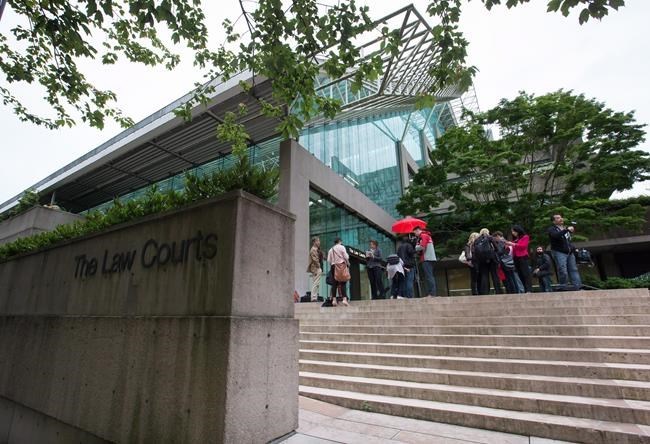VANCOUVER — Almost nine months into the first-degree murder trial of Ibrahim Ali, his lawyer told the jury the defence would not be calling evidence over allegations his client sexually assaulted and killed a 13-year-old girl in Burnaby, B.C.
But, as the jury entered the courtroom to be informed of that decision, Ali stood up.
"Mr. Justice, I'd like to speak to the jury," he said in English after using an Arabic and Kurdish interpreter throughout the trial.
Justice Lance Bernard interrupted Ali and asked his lawyer if he needed a moment to speak with his client. Defence lawyer Kevin McCullough declined.
McCullough then told the jury the Crown hadn't met the burden of proof to find Ali guilty.
"Defence isn't calling a case," he said, adding he was prepared to deliver closing arguments.
However, Bernard informed the jury on Tuesday that closing arguments from both the Crown and defence would begin next week.
"This means that the evidentiary portion of the trial has concluded. The next stage in the proceedings for you is hearing the closing addresses. At some point after those are completed, I will give my final instructions to you and then you will begin your deliberations on the verdict."
The jurors then chose a foreperson to help facilitate deliberations and deliver the verdict. They were then instructed to return Nov. 30.
Bernard said the jury was expected to consider the verdict starting the week of Dec. 4.
"I will remind you that once you begin your deliberations, you will be sequestered. This means you will not be able to return to your home until you have reached a verdict," he said.
Ali pleaded not guilty to the charge of murdering the teenager, whose name is protected by a publication ban.
The girl's body was found in Burnaby's Central Park in July 2017, just hours after her mother reported her missing.
The jury heard from almost 50 Crown witnesses, including police, civilians and experts.
One of the key witnesses was Christine Crossman, an RCMP forensic biologist, who testified that Ali's DNA was found inside the body of the girl.
She told the court only the DNA of Ali and the girl was detected from vaginal and anal swabs, where sperm cells matched Ali’s DNA.
On cross-examination, the defence focused on the fact Ali’s genetic profile was not found elsewhere on the victim and suggested that “the person who had sex” with the teen may not be the one who killed her.
The jury heard from police officers who first found the girl's body, those who handled DNA and others who served the warrant for Ali's arrest.
The girl's mother, brother and a friend testified about their relationships and final interactions with the girl the day she died.
Forensic pathologist Dr. Jason Morin, who conducted the autopsy, told the jury the girl had been strangled and had numerous injuries on her body.
The jury also heard from a sexual assault expert who testified that the teen's injuries strongly indicated that she had been sexually assaulted. However, Dr. Tracy Pickett's testimony under cross-examination was never completed.
Pickett, a specialist in emergency and clinical forensic medicine, was found dead on Sept. 28.
On Nov. 7, Bernard instructed the jury to disregard Pickett's testimony and to resist all speculation into her death.
Crown attorney Isobel Keeley told the court in her opening statement in April that evidence would show the teen was walking through the park when she was dragged off a pathway into the forest, sexually assaulted and then strangled.
The defence did not reveal its theory of events to the jury.
This report by The Canadian Press was first published Nov. 21, 2023.
Brieanna Charlebois, The Canadian Press



